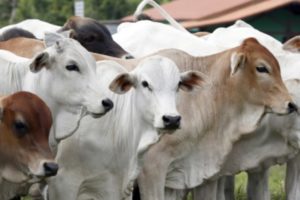
Agribusiness refers to the enterprises, industry, system, and the field of study of the interlinked economic value chains in agriculture and bio-economy Below, we provide a brief overview of the field in South Africa, and some things you may want to consider before stepping into, or onto, the field.
South Africa has a market-oriented economy that is highly diversified and includes the agricultural production of all major grains (except rice), oilseeds, deciduous and subtropical fruits, sugar, citrus, wine, and many vegetables. Livestock production includes cattle, dairy, hogs, sheep, and a well-developed poultry and egg industry. Value-added activities in the sector include slaughtering, processing, and preserving of meat; processing and preserving of fruit and vegetables; dairy products; grain mill products; crushing of oilseeds; prepared animal feeds; sugar refining and cocoa, chocolate, and sugar confectionery amongst other food products.
The agricultural sector contributed around 10 percent to South Africa’s total export earnings in the financial year of 2019, at a value of R154 billion. Citrus, wine, table grapes, corn, and wool accounted for the largest exports by value. South Africa also exports nuts, sugar, mohair, apples, and pears to name just a few products.
The grain industry (barley, maize, oats, sorghum and wheat) is one of the largest agricultural industries in South Africa, contributing more than 30% to the total gross value of agricultural production. Corn is the largest locally produced field crop, and the most important source of carbohydrates in the SADC region for animal and human consumption. South Africa is the main corn producer in the SADC region, with an average production of around 12 million tons per annum.
Agribusiness is growing in South Africa, and as we learned above, the impact of South African agribusiness is far reaching, extending beyond our borders into Africa and beyond. Compared to the rest of Africa, South Africa has the most modern, productive and diverse agricultural economy. There are approximately 32,000 commercial farmers in South Africa, of which between 5,000 and 7,000 produce approximately 80% of agricultural output.
Key agricultural products in 2019 generated almost R300 million with animal products alone contributing almost R140 million, horticultural products at R85 million and field crops at R60 million. The market is lucrative, and if you know what you are getting yourself into, it can be very rewarding.
The US governments’ assessment of the South African agribusiness economy, which was used as advice for their own investors, found that there are parallel opportunities in agribusiness which doesn’t deal with primary production. The agribusiness equipment subsector is ripe with opportunity for manufacture, production and distribution of equipment, ranging from tractors, combine harvesters, balers, planters, precision agriculture equipment tech, sprayers, irrigation, storage, soil testing equipment, spare parts more. Most equipment is imported from South America, Europe and the US, which come with added costs – local equipment producers could fill a niche and needed gap.
The rising influence of digital and internet commerce is also seen as a gap in the market, and if you have a STEM, computer science or related degree and experience, being able to integrate these technologies into the industry to increase efficiency and ease could be rewarding. We are currently seeing the emergence of new and innovative ‘’blockchain’’ technology which is impacting the industry in terms of supply chain, tracking, efficiency, and more. This is a sub-field which may be of interest to budding entrepreneurs with interests in tech and agriculture.
In terms of local opportunities for agricultural entrepreneurs, the issue of land in South Africa becomes of interest. The debate around “expropriation of land without compensation” has been part of the post-apartheid agenda and goals since the ANC came into power in 1994. However, their implementation of the project has been lacklustre and slow. A part of this goal includes giving agricultural land to black farmers as a means for correcting historical advantage. This has happened, but at a very minimal and ineffective level. Nonetheless, there are opportunities for black farmers to acquire agricultural land for economic purpose.
As part of the land transformation project, there are a number of financing and development grants available to facilitate this. The list below may be of use for you to research further, ranging from programs from banks, government, and other agencies and institutions who play a role in the agribusiness industry:
1. Land Bank’s financing for farming & agri-enterprises
2. Integrated food security and nutrition programme
3. Umsobomvu Youth Fund (UYF)
4. South African Breweries (SAB) fund
5. National Development Agency (NDA) grants
6. AgriBEE Fund
7. Land Redistribution for Agricultural Development
8. AGRA grants
9. The Industrial Development Corporation (IDC) fund
10. Local Department of agriculture and rural development
Especially if you are a person of colour and a young entrepreneur, agribusiness opportunities are something worthwhile to explore. Let this be the start of your journey to finding out more – there is lots, lots, more to know.
